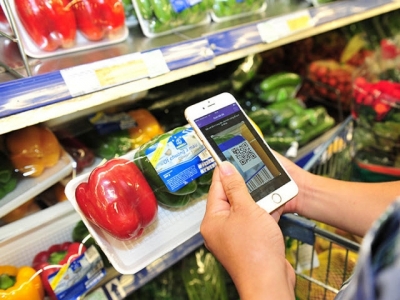Blockchain technology traces farm produce origin in Vietnam

Blockchain technology is an important solution to trace the responsibilities of involved parties in the farm produce supply chain. However, the feasibility of the technology application in the immediate time is questionable.
In Vietnam, where consumers face risks from food of unknown origin, tracing farm produce with QR codes helps consumers, producers and distributors.
However, according to Bui Huy Binh, CEO of TraceVerified, many consumers complain that when scanning QR code, they are led to websites of enterprises that provide the products. In these cases, QR code does not properly perform traceability.
Traceability is the ability to identify and track a product unit in the supply chain, i.e. to find what consignment of products an item belongs to, and provide information that identifies the responsibilities of the parties involved in the production, packaging and distribution phases.
The traceability must be transparent, which means that the information of the supply chain, mostly related to production conditions, environmental protection and sustainable development, must be disclosed.
Binh cited six reasons why make QR code application still unable to satisfy the requirements.
- First, Vietnam still doesn’t have a set of criteria on safe food. The Food Transparency Association is going to set standards on safe food soon.
- The second problem lies in the lack of information connections. Of two batches of 1,000 kilograms of vegetables grown on two different days, it is necessary to separate the two batches of goods and label them with corresponding QR codes.
Traceability is the ability to identify and track a product unit in the supply chain, i.e. to find what consignment of products an item belongs to, and provide information that identifies the responsibilities of the parties involved in the production, packaging and distribution phases.
- Third, the accuracy of information is doubtful. At present, the information customers receive is the one from suppliers, while it cannot be verified by technology solution providers.
- Fourth, scanning QR code to find the origin of products is not a habit of Vietnamese consumers, though it takes only one minute to do this.
- Fifth, the legal framework remains insufficient. There are only two ministerial circulars on the issue with simple regulations which stipulate the producers’ responsibility to provide information.
- The sixth problem is the lack of application technology in agriculture. Though Vietnam’s telecommunication infrastructure system is pretty good, 3G goes slowly in rural areas, while farmers have not become used to software to support their production.
With blockchain, the traceability will be improved. With QR code, technology solution providers may somehow interfere with the supply chain and change information about products. They do not do this with blockchain. However, it will take time to use the technology in Vietnam.
Có thể bạn quan tâm
 Seeking markets for lychee fruit
Seeking markets for lychee fruit When every lychee season comes, the provincial People’s Committee of Bac Giang province (PPC) and its related agencies join hands to find the markets.
 Italian coffee producers highly evaluate Vietnamese coffee beans
Italian coffee producers highly evaluate Vietnamese coffee beans Italian coffee producers highly evaluated Vietnamese coffee beans as they are essential ingredients of their products
 Tan Uyen Farmers’ Society actively supports farmers
Tan Uyen Farmers’ Society actively supports farmers Over the past time, Tan Uyen town’s Farmers’ Society made efforts in supporting farmers to develop production models